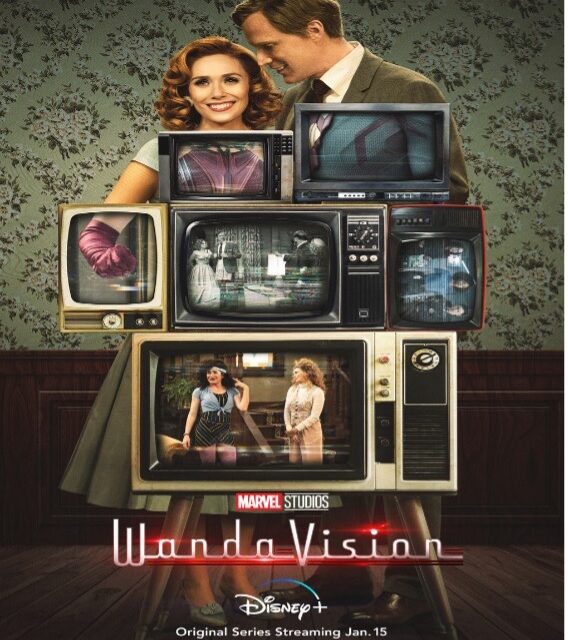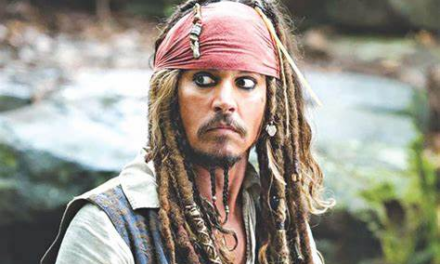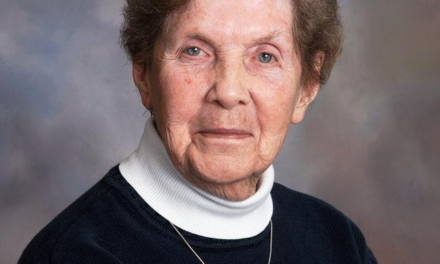Madison Thibodeau ’21, Editor in Chief

Gone are the sprawling military bases, high tech galactic speedsters, and far flung corners of the Earth that acted as backdrops for the Avengers’ latest battles. Instead, Wanda (Elizabeth Olsen) and Vision (Paul Betanny) have to bumble their way through a series of classic sitcom storylines without their nosy neighbors realizing that they are living next to a witch and the walking, talking personification of the galaxy’s most powerful AI. There is no explanation for why Wanda and Vision are seemingly living out an archetypical suburban fantasy, but as eventually becomes clear, it may not entirely be their choice.
The most striking quality of WandaVision is its tone inspired from the golden-age sitcom culture. It is refreshing to see a spectacle movie brand like Marvel Studios pay ode to the history of television. In order to capture some of that old school television energy, WandaVision’s first episode was filmed in front of a live studio audience, but as the series progresses, the look and feel of the series morphs to reflect how the medium changed over the decades. Jac Schaeffer, writer and producer of WandaVision, said “The show is a love letter to the golden age of television. We’re paying tribute and honoring all of these incredible shows and people who came before us, [but] we’re also trying to blaze new territory.”
Following Endgame, WandaVision sees Wanda and a seemingly alive Vision move to the town Westview where the pair attempt to hide their powers in order to live as a “normal” married couple. Kathryn Hahn’s character, a woman named Agnes, factors into the normality of Wanda and Vision’s new lives in Westview, but while they all may initially believe that nothing is out of the ordinary in their small town, it is clear to audiences that is more than far from the case.

This new miniseries functions as a character study and multi-episode mystery. What at first seems to be a harmless romp through television history quickly becomes an intriguing and complex puzzle. The show is purely a triumph. The mystery is deep and interesting, the nods to different eras of television are nostalgic and provide plenty of laughs, and the show has all the trappings of a creative Marvel production brought to the small screen.
Olsen and Bettany shine as the most electric couple in comic book history, showing an authentic chemistry that is truly the heart of the show. Their relationship, something that is given too little time in the Marvel films, is allowed the attention it deserves and forms the anchor of the show as the mystery progresses. The two leads are also surrounded by a competent cast that makes the show all the more enjoyable. Randall Park and Kat Dennings reprise their Marvel Cinematic Universe roles and provide plenty of laughs, and Kathryn Hahn with Teyonah Parris round off a powerhouse crew.

Outside of the impressive and at times emotional performances of the two leads, the creative story is the best part of this new series. The twists, turns, and genuine creativity make the show a joy to watch, and every episode ends with the viewer on the edge of their seat, dying to know what happens next. Putting the pieces and clues together is half the fun, and WandaVision is a standalone television experience in what could already be considered its own golden age of television. The story is also welcome because it gives an intentional and deep look into the characters and backstories of Scarlet Witch – Wanda’s Marvel alias – and Vision, two players often sadly overlooked in the Marvel films. This show corrects that mistake and gives us a front-row seat into one of the oddest, saddest, and most intriguing relationships seen in comic book movie history.
The camera work is excellent and changes to fit the particular era of television in great detail. Careful viewers will notice winks to various television shows ranging from I Love Lucy to Modern Family, and these references provide the center of the laughs throughout the miniseries.
Like happy gas before a surgery, however, the humor prevalent throughout the series is often the anesthesia for deep emotional themes. The show thoughtfully explores topics of loss, guilt, and tragedy, making it an emotionally deep and sometimes heart-wrenching viewing experience.
Despite its immense merits, the show is not without fault. Most notably, the finale feels a bit like it ends the show on a flat note, concluding an exceedingly complex story in a rushed manner. It makes it feel like they had a destination they wanted to reach but too few episodes to do it well. There are also some characters that feel roped-in and forced, and the credit scenes at the end make the trajectory of the Marvel Cinematic Universe and its slew of television shows unclear.
Overall, WandaVision shows us that Marvel has come back with a bang, and this show is the proud bannerman for the new and unique direction of the Marvel Cinematic Universe. Filled with laughs, nostalgia, action, and mystery, this exploration of Marvel’s odd couple is certainly worth the watch.






